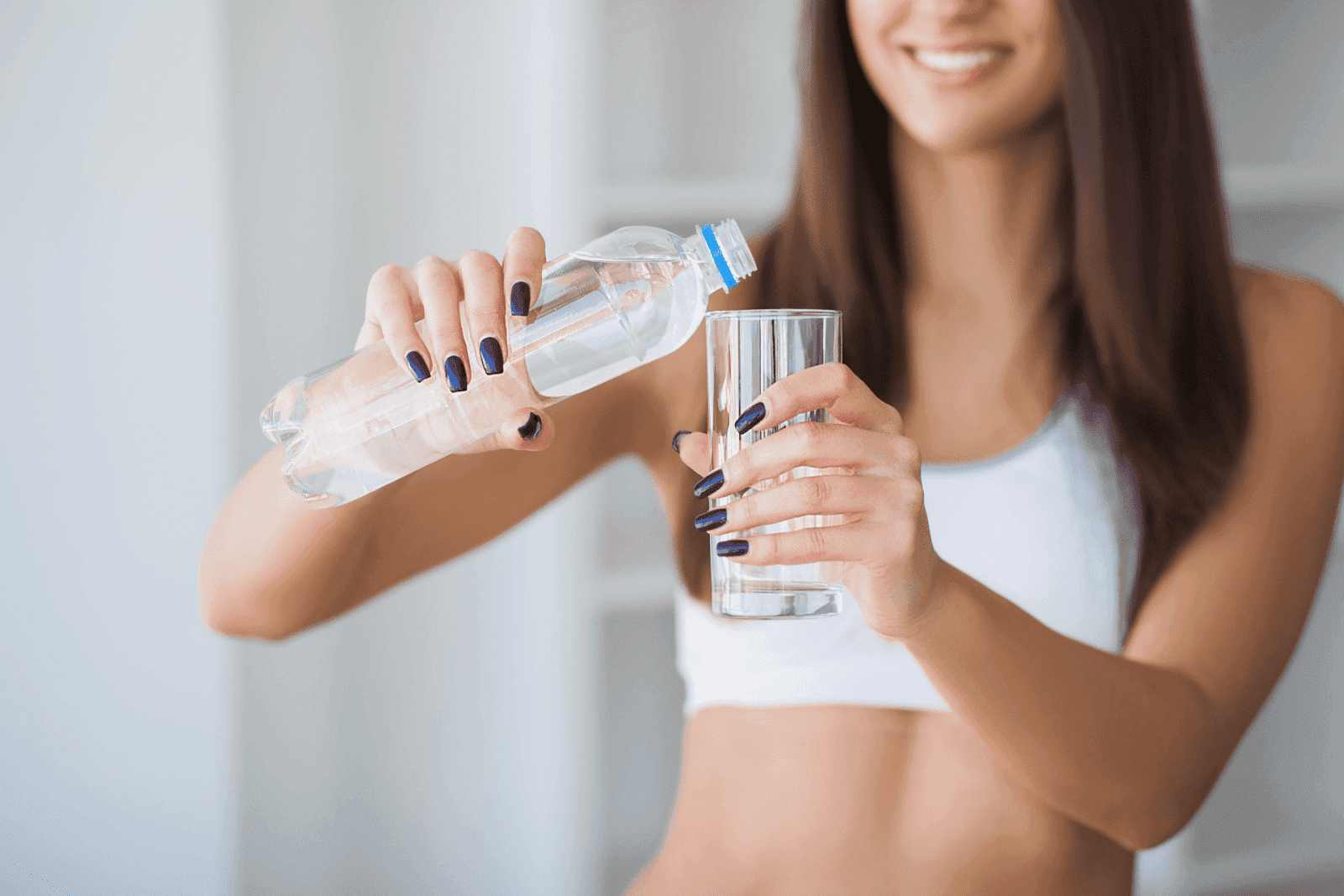How Long Does It Take to Fully Rehydrate?
Staying hydrated is essential for maintaining good health, yet many people underestimate how long it takes to fully rehydrate after dehydration occurs. Whether you’ve been [...]
Read More
Medically reviewed by Alan Lucks | MD, Alan Lucks MDPC Private Practice - New York on October 12th, 2025.
Mild dehydration (1-2% body weight loss) resolves within 30 minutes to 2 hours, while severe cases exceeding 5% body weight loss require up to 24 hours for complete recovery.
Electrolyte solutions containing sodium, potassium, and glucose restore fluid balance significantly faster than plain water by enhancing intestinal absorption and improving cellular retention.
Urine color serves as the most reliable recovery indicator—pale yellow signals adequate hydration, while dark amber indicates continued fluid deficit requiring ongoing replacement.
Children and elderly adults face prolonged recovery times due to impaired thirst mechanisms and reduced kidney efficiency, making them vulnerable to complications during the process.
Heart rate and blood pressure normalize within 2-4 hours of adequate fluid replacement, alongside restored energy levels and elimination of thirst sensation.
Staying hydrated is essential for maintaining good health, yet many people underestimate how long it takes to fully rehydrate after dehydration occurs. Whether you’ve been exercising vigorously, spending time in the heat, or recovering from illness, understanding the rehydration process can help you recover faster and avoid complications. This article explores the science of rehydration, factors that influence the time it takes to rehydrate, and practical tips for adequate hydration.
Rehydration is the process of restoring the body’s fluid balance after losing water and electrolytes. The human body is composed of about 60% water, which is crucial for regulating temperature, transporting nutrients, and supporting cellular function. When the body loses more fluids than it takes in, dehydration occurs, leading to symptoms such as fatigue, dizziness, dry mouth, and, in severe cases, organ failure.
Fully rehydrating means replenishing not only water but also essential electrolytes like sodium, potassium, and magnesium. These minerals help maintain nerve function, muscle contractions, and acid-base balance. Without adequate rehydration, the body’s systems cannot function optimally, which is why understanding how long it takes to rehydrate is essential for health and recovery.
Dehydration can occur for various reasons, including intense physical activity, exposure to high temperatures, or illnesses that cause vomiting or diarrhea. Athletes, for instance, are particularly susceptible to dehydration during prolonged exercise, as they sweat profusely and may not drink enough fluids to compensate for the loss. This is why many sports drinks are formulated not only to provide hydration but also to replenish electrolytes lost during strenuous activities. Understanding the signs of dehydration and the importance of timely rehydration can significantly enhance performance and overall well-being.
Moreover, the method of rehydration can vary based on the severity of dehydration. For mild cases, drinking water or electrolyte-infused beverages may suffice. However, in more severe situations, especially in medical contexts, intravenous fluids may be necessary to restore fluid balance quickly. The body’s ability to recover from dehydration is influenced by factors such as age, overall health, and the duration of fluid loss. Therefore, being proactive about hydration, especially during hot weather or while exercising, can help prevent the negative effects of dehydration and promote better health outcomes.
 How Long Does It Take to Rehydrate?
How Long Does It Take to Rehydrate?The time required to fully rehydrate varies depending on several factors, including the severity of dehydration, the method of rehydration, and individual health conditions. Mild dehydration can often be corrected within a few hours, while moderate to severe dehydration may take longer and sometimes require medical intervention.
For mild dehydration, which usually results from everyday activities like light exercise or minor sweating, rehydration can occur within 30 minutes to a few hours. Drinking water or consuming fluids with electrolytes typically restores balance quickly. The body absorbs fluids through the intestines, and within minutes to an hour, hydration levels begin to normalize. It's important to note that incorporating foods with high water content, such as cucumbers, oranges, and watermelon, can also aid in the rehydration process, providing both hydration and essential nutrients.
When dehydration is more severe, such as after intense exercise, heat exposure, or illness causing vomiting or diarrhea, rehydration may take several hours to a full day. In these cases, simply drinking water may not be sufficient. Oral rehydration solutions or electrolyte-rich drinks are recommended to replace lost salts and fluids simultaneously. These solutions often contain a precise balance of sugars and salts, which help to enhance the absorption of fluids in the intestines, making them more effective than plain water alone.
In extreme cases, intravenous (IV) fluids administered in a healthcare setting can rapidly restore hydration, often within an hour or two. However, this is reserved for critical situations where oral intake is not possible or effective. It's worth mentioning that individuals with certain health conditions, such as kidney disease or heart problems, may experience a longer rehydration time due to their bodies' unique needs and limitations. Monitoring hydration levels through symptoms like thirst, urine color, and frequency can be crucial in determining the effectiveness of rehydration efforts, allowing for timely adjustments to fluid intake as needed.
Understanding what influences the speed of rehydration can help tailor strategies for faster recovery. Here are some key factors:
The greater the fluid loss, the longer it takes to rehydrate. Mild dehydration might only involve a 1-2% loss of body weight due to water, while severe dehydration can exceed 5%. The body needs more time and fluids to replace larger deficits.
Water alone is adequate for mild dehydration but may not suffice when electrolyte loss is significant. Drinks containing sodium, potassium, and glucose, such as oral rehydration solutions or specially formulated sports drinks, enhance fluid absorption and retention. Consuming fluids with electrolytes can speed up rehydration compared to plain water.
Children, elderly individuals, and people with certain medical conditions may have impaired thirst mechanisms or kidney function, affecting how quickly they rehydrate. For these groups, careful monitoring and appropriate fluid replacement are crucial.
Hot weather, high humidity, and intense physical activity increase fluid loss through sweating, requiring more aggressive rehydration strategies. Conversely, cooler environments and rest reduce fluid needs.
Knowing when you have successfully rehydrated is important to avoid both dehydration and overhydration. Some common indicators include:
Urine color returning to a pale yellow
Reduced feelings of thirst
Improved energy levels and mental clarity
Normal heart rate and blood pressure
If symptoms such as dizziness, confusion, or rapid heartbeat persist despite fluid intake, it is important to seek medical advice promptly.
To rehydrate efficiently and safely, consider the following recommendations:
For moderate dehydration, choose beverages that contain electrolytes. Oral rehydration solutions are scientifically formulated to optimize absorption and restore electrolyte balance. Sports drinks can be helpful but often contain added sugars, so use them judiciously.
Instead of consuming large volumes of fluid at once, sip small amounts regularly. This approach helps prevent nausea and improves absorption.
Keep an eye on urine color and volume, thirst levels, and physical symptoms. Adjust fluid intake accordingly to maintain balance.
If dehydration symptoms are severe or persistent, consulting a healthcare provider is essential. Telehealth services like Doctronic.ai offer convenient access to medical professionals who can provide guidance and treatment recommendations from the comfort of your home.
Sometimes dehydration is a symptom of an underlying condition such as infection, chronic illness, or medication side effects. If you experience persistent dehydration or related symptoms like fever, vomiting, or confusion, professional evaluation is important.
Doctronic.ai, a leading AI-powered telehealth platform, provides quick and affordable access to licensed doctors 24/7 across all 50 states. With Doctronic, you can have a video visit for less than $40, receive personalized medical advice, and get treatment recommendations tailored to your needs. Their AI doctor also offers free initial assessments that synthesize the latest peer-reviewed medical research, ensuring you get smart, fast, and personal care.
Using telehealth services like Doctronic.ai can help you manage hydration issues promptly without the need to visit urgent care centers, especially during times when in-person visits are challenging.
 Restoring Balance Through Proper Hydration
Restoring Balance Through Proper HydrationFully rehydrating after fluid loss is a vital process that depends on the severity of dehydration, the fluids consumed, and individual factors. Mild dehydration can be resolved within minutes to a few hours, while more severe cases may require longer periods and specialized fluids or medical intervention.
Paying attention to your body’s signals, choosing electrolyte-rich fluids, and seeking professional advice when necessary can ensure safe and effective rehydration. Telehealth platforms like Doctronic.ai provide accessible and expert care to support your hydration and overall health needs anytime, anywhere.
Remember, staying hydrated is not just about drinking water but about maintaining a balanced fluid and electrolyte status to keep your body functioning at its best.
Don't let dehydration slow you down. With Doctronic, you can receive immediate, AI-powered guidance on how to effectively rehydrate based on the latest medical research. Our AI doctor is ready to provide you with personalized care that remembers your unique health history and needs, offering advice that's faster, smarter, and more personal. Whether you're an athlete, battling an illness, or just looking to maintain optimal hydration, Doctronic is here for you 24/7 in all 50 states. Skip the line. Talk to an AI Doctor Now, for free.
Recovery time depends primarily on initial fluid loss severity and solution type, with electrolyte drinks providing measurably faster results than water alone. Monitor urine color and energy levels to track progress, as complete restoration may take anywhere from 30 minutes to a full day. If you're experiencing severe symptoms or have concerns about your recovery, Doctronic can provide personalized guidance.
Staying hydrated is essential for maintaining good health, yet many people underestimate how long it takes to fully rehydrate after dehydration occurs. Whether you’ve been [...]
Read More